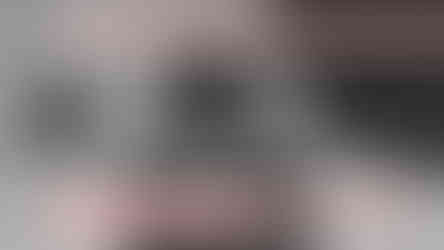
Make people happy
My job title?
Interaction Designer
What is your typical "day in the life of a designer"?
The most typical thing about my day is to keep it from becoming typical. The only patterns I follow are general wellbeing habits such as eating and sleeping/waking up on time which I find helps me remain creative throughout the day as well as for prolonged stints of time.
I find constantly switching things up allows for new perspectives on the task at hand but also keeps the work experience from dipping in interest even if the work can get repetitive sometimes.
Design principles you live by?
1) Never taking things for face value- there's always more to it then meets the eye. Asking a few questions, being curious for the sake of curiosity rather than finding an answer can many times lead to interesting new takes!
2) Getting lost is an important step in finding the way- I've learned how (and when) to work with my gut. It's alright to not feel like you're lost because that's a great indicator that you might not have been here before. It's almost like diving- the longer we can hold our breath, the more likely we are to find the treasure on the ocean floor ;)
3) Design is what happens in between- Projects start far before the launch dates. Everything we experience, every interaction we have, every random reel we 'waste time on' can be useful to feed the brain with information that can at some point become triggers for thoughts and ideas. I find myself thinking (and procrastinating) a lot, but I've begun to find rituals and techniques to convert these instances into useful inspiration when a project begins.
4) Design that fits in rather than stands out- In the constant turmoil of evolving fields and processes in design, it's natural to need to be the newest, flashiest, coolest, and this shows in the kinks that all designers posses. It's a statement that we are different and we are here to challenge the world. In my experience, having a more humble outlook on design has proved to be more effective (albeit more damaging to my ego as a designer ;) ) as it shifts the dynamic from us designing FOR to designing WITH people around us.
5) Doing design for what design does to me- I find that making it a point to be a better person has a direct and disproportional impact on my approach and perspectives on design. At the end of the day, design boils down to some core human principles such as curiosity, genuine selflessness, collaborative spirits, etc.
What problem can't you stop thinking about?
The constant battle for more. Designing sustainable products is like bringing a mop to save a sinking ship.
I sometimes feel like bad design might be good design- making people use things less, want less might actually be more beneficial to us as life forms on this planet.
We would probably do more good by not doing our jobs..oof.
What’s the best advice you’ve ever received?
Don't chase it. Whatever it is- success, answers, ideas, motivation.
Putting myself in the right frame of mind has proven more successful than chasing things that I WANT. Having trust in my abilities and comfort with my shortcomings helps remove most of the complications that cloud judgment during and beyond the design process.
When is "Design done wrong"?
Bad is always to do with a frame of reference. As an example: bad seats at a bus stop means people are nudged to not camp out there, thereby increasing the safety and the overall flow of the system (aka good design).
Or on the other hand Spotify ads without premium are probably the only reason people fork over the money because they are just so ANNOYING. Simple solution targeted at the jugular that rakes in 100s of millions, but I personally choose to suffer through the ads not because it costs money, but the audacity of Spotify to bully us out of the money. Aggravating.
What skill do you wish you picked up really early on?
Try. You have nothing to lose and everything to gain.
Design tools you can’t live without? (Physical and/or digital)
My trusty scratchpad.
Always have it handy to scribble down stupid thoughts that generally turn out to be useful at a later date.
What’s in your bag?
A laptop (+accessories)
My scratchpad
Lots of sticky notes
Rain cover so that I don't have to worry about getting wet on long walks!
Books you highly recommend for anyone pursuing a career in design?
Essentialism by Greg Mckeown
How to make friends and influence people by Dale Carnegie
Ultra Learning by Scott H. Young
Two Designer friends you admire and we should talk to!
Where and What did you study?
Interaction Designer
BSc.Design and MSc.Design at Strate School of Design, India














